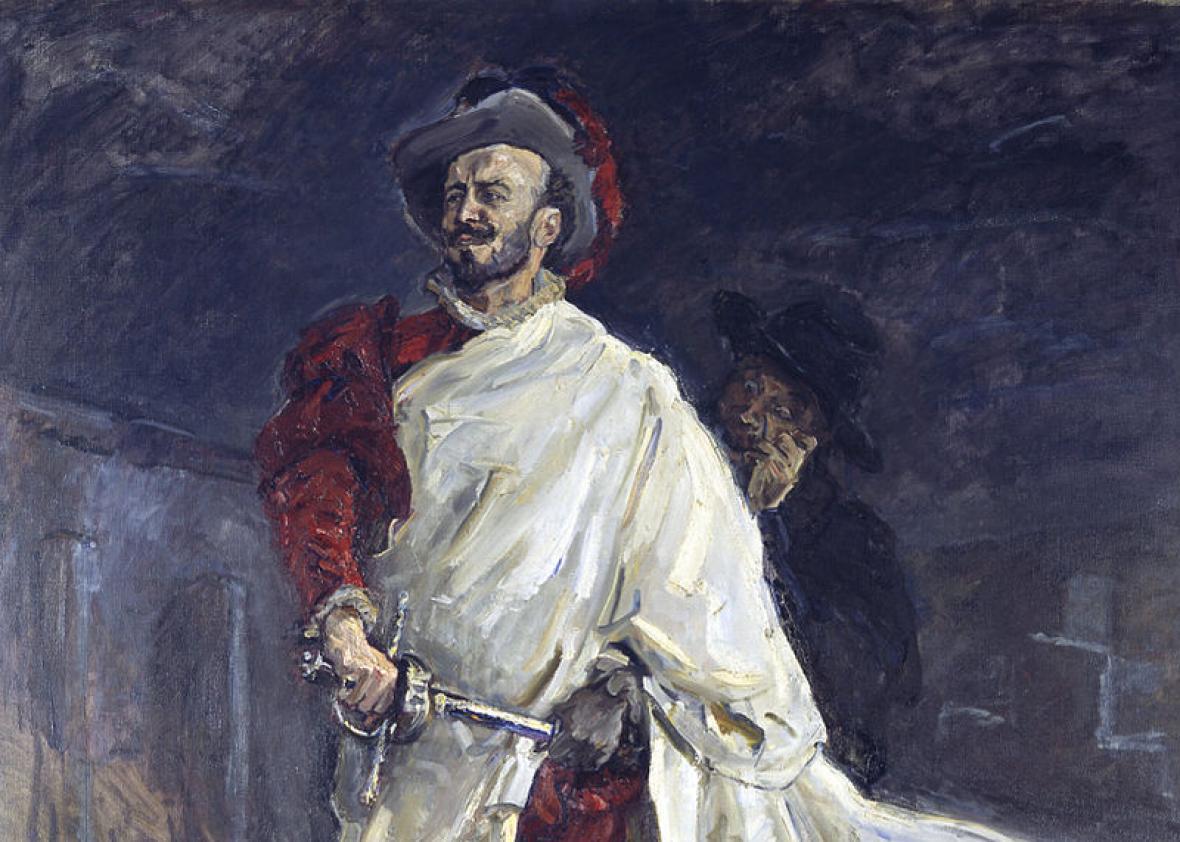This Saturday the Metropolitan Opera’s Don Giovanni will air live on over 2,000 movie screens across the world. Undecided American voters might consider attending. The opera opens with Donna Anna raging against Don Giovanni because, as my college textbook once put it, “He had his way with her.” Accompanied by a full orchestra, she drags him out of her house. “Like a desperate fury,” she sings, “I’ll know how to pursue you.”
Later she sings her story to her fiancé Don Ottavio. After a tremendously loud (by 18th-century standards) orchestral opening, she starts singing alone; no noodling violins, no big sounds. “With one hand he tried to silence me and with the other gripped me so tightly that I thought I must succumb,” she sings, telling a story that will sound familiar to many women. “And then the shame, the horror of such a vile attack gave me so much strength that by struggling, twisting and turning, I managed to free myself.” Don Ottavio has trouble believing this of such a noble and charming man. But eventually he, and everyone else, hears through the superficial charm of the rich rogue and listens to the violent actions beneath the surface.
Neither Mozart nor his librettist Lorenzo Da Ponte ever meant Don Giovanni to be a role model; the opera’s original title was “I dissoluto punito, ossia Il Don Giovanni” (“The Immoral Man Punished, or Don Giovanni”). It is true that in the “Catalogue” aria Leperello recites the extent of Don Giovanni’s conquests: 1,003 in Spain, 100 in France, etc. But in the end the message is that even a rich charismatic guy can not get away with predatory behavior, groping, serial rape, and, I’m sure, the occasional pussy-grab. The Don ends up dragged to hell.
When I wrote an undergraduate paper about Don Giovanni 30 years ago, it seemed radical to ask if the Don was a rapist, rather than a seducer. We learned the “Catalogue” aria as a comic tune and the Don as a roguish but ultimately captivating figure. But it was never that easy. The thing about Don Giovanni, unlike some other rich guys we know, is that his assaults all happen offstage. The audience never actually sees it. Before Peter Sellars’ groundbreaking staging of the story in 1987, many productions did, indeed, show women swooning away with the charming rogue. These days stagings that make visible and audible the sadistic power-based violence are commonplace. A few years ago some students at the University of Virginia, where I teach, staged the opera in a fraternity house with a roofied high school student as one of the victims. Indeed, when I asked my Music 101 if Don G had committed a Title IX violation, they all said YES. In fact, the opera gave them tools to understand rape culture at their own institution.
One can easily imagine a staging this month with a real estate mogul traveling the country and leaving groped and humiliated women in his wake. If you watch the opera in a movie theater this weekend, don’t listen for a litany of rapes apologies or denials. They aren’t there. But do listen for the looming threat of rape. It’s there in a sonic world of gorgeous melodies. “Batti, Batti” (“Beat me, beat me”) these days often gets played as an episode of domestic violence. (For example, in Martin Kusej’s staging, the aria ends with Zerlina on her knees.)* Underneath the aria’s tunefeulness, the orchestra creates multiple rhythms that sound urgent, tense and often hard to keep together. And almost always this tune culminates with audience applause; we the listener become complicit in this scene of violence.
I’m not saying Mozart or Da Ponte would seem particularly woman-centered today. But it seems like even they knew the difference between crass ickiness and the kind of menacing behavior that breaks laws. Eighteenth-century opera reverberates with men who treat women badly and objectify them, but they don’t all assault women, and they don’t all end up in hell. The parallels between the two Dons are too obvious to even state, but maybe hearing them, even as the melodies sweep us away, can remind us that some of the nastiest parts of our past are still present.
*Correction, Oct. 21, 2016: This post originally misidentified the character who ends the aria “Batti, Batti” on her knees. It’s Zerlina, not Donna Ana.
